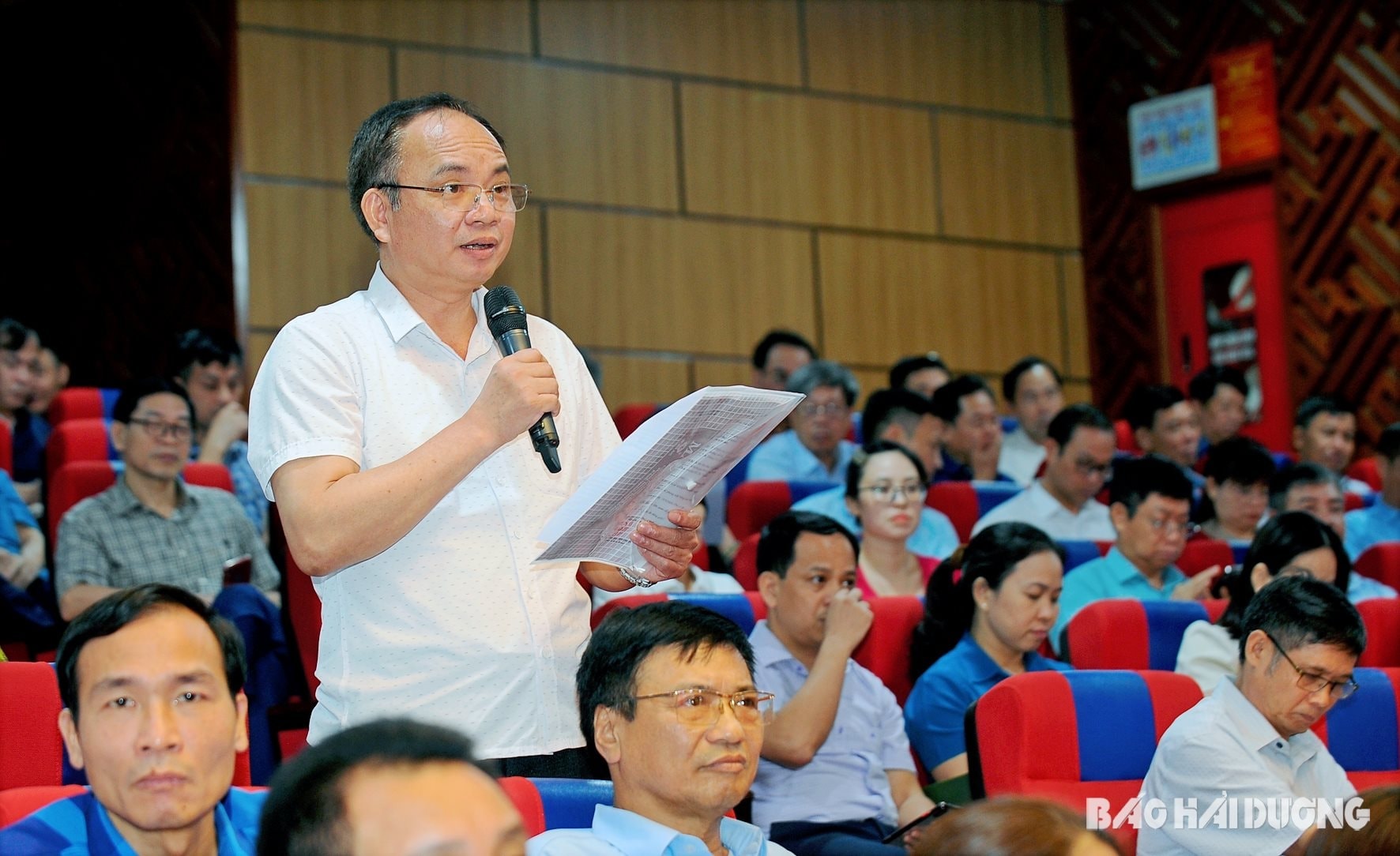To avoid 'brain drain' when streamlining the apparatus, it is necessary to be fair and objective when evaluating officials and effectively implement policies to attract talented people to state agencies.

In order to carry out the revolution of streamlining the apparatus, in recent days in many localities, including Hai Duong, there have been officials, civil servants, and public employees who have applied for early retirement, quitting their jobs when they still have many years of work left. Some have 1-2 years left, others have 5-6 years, even 10 years left before reaching retirement age.
Among them, there are cadres who have been evaluated as "innovative" and have contributed to bringing high achievements to their units for many years.
This is also the reason why many people are concerned that we are at risk of "brain drain" when those leaving the system during this revolution are capable people and good workers.
This concern is not without basis. The fact is that good workers and people with good professional skills are always welcome wherever they work, especially in the private sector.
In Hai Duong, this story has been present in the medical field. According to provincial statistics, from January 1, 2021 to June 15, 2022, the whole province had 139 medical staff resigning, including 44 doctors, many of whom were highly qualified.
Statistics from the Ministry of Home Affairs in 2023 also showed that within 1 year from July 2022 to June 2023, nearly 19,000 civil servants and public employees nationwide quit their jobs, concentrated in Hanoi and Ho Chi Minh City.
There are many reasons why civil servants and public employees leave the public sector, including income and development opportunities. Many people after moving to the private sector have found better jobs with higher salaries, especially civil servants in the health and education sectors.
To overcome the “brain drain” of the public sector, many policies have been issued to retain staff and attract talented people. Increasing the basic salary, giving priority to recruiting people with high professional qualifications such as PhDs, masters, and excellent university graduates, etc. are solutions implemented by many provinces and cities. However, in many places, the gap between the policies to attract talented people in the public sector and the private sector is still quite large.
In Hai Duong, provincial leaders have organized dialogues with health and education sector staff to grasp their thoughts and aspirations, promptly remove obstacles and difficulties, and introduce support policies to attract workers. The Provincial People's Council has issued a resolution on additional support for teachers at public educational institutions at a level of VND 700,000 - 1,000,000/person/month from January 1, 2024 to December 31, 2025; issued policies to support training, attract and reward medical human resources at public agencies and units under the province's management for the period 2025 - 2030...
Back to the ongoing story of streamlining the apparatus. On December 31, 2024, the Government issued Decree No. 178 on policies and regimes for cadres, civil servants, public employees, workers and armed forces in implementing the organizational arrangement of the political system.
On the same day, the Government also issued Decree 179 on policies to attract and promote talented people to work in agencies, organizations and units of the Communist Party of Vietnam, the State, the Vietnam Fatherland Front and socio-political organizations.
The regulations clearly state the policy for officials who leave their jobs due to the streamlining of the apparatus, and also clearly state the policy to attract good and talented people to the public sector. The problem is how do we keep good people at the same time?
The key point is to evaluate cadres fairly and objectively. Decree 178 stated that the evaluation of cadres when streamlining the apparatus is based on the results of performing tasks in the last 3 years, based on criteria of moral qualities, professional competence, results, specific products, and criteria for evaluating outstanding people, actively innovating, being creative, daring to think, daring to do. This is the most difficult step but also the important step to retain talented people.
In the context of many individuals having the same title but the actual results and quality of work are very different, we need to be alert to have a true assessment, not just rely on the form of competition and year-end rewards.
Those who leave because they cannot meet the state's job requirements are commendable.
Along with properly evaluating cadres, it is necessary to encourage those who perform poorly to retire early, encourage talented people, people with good ethics and professional capacity to stay; create opportunities for them to demonstrate their talents and contribute to the common work.
HOAI ANH